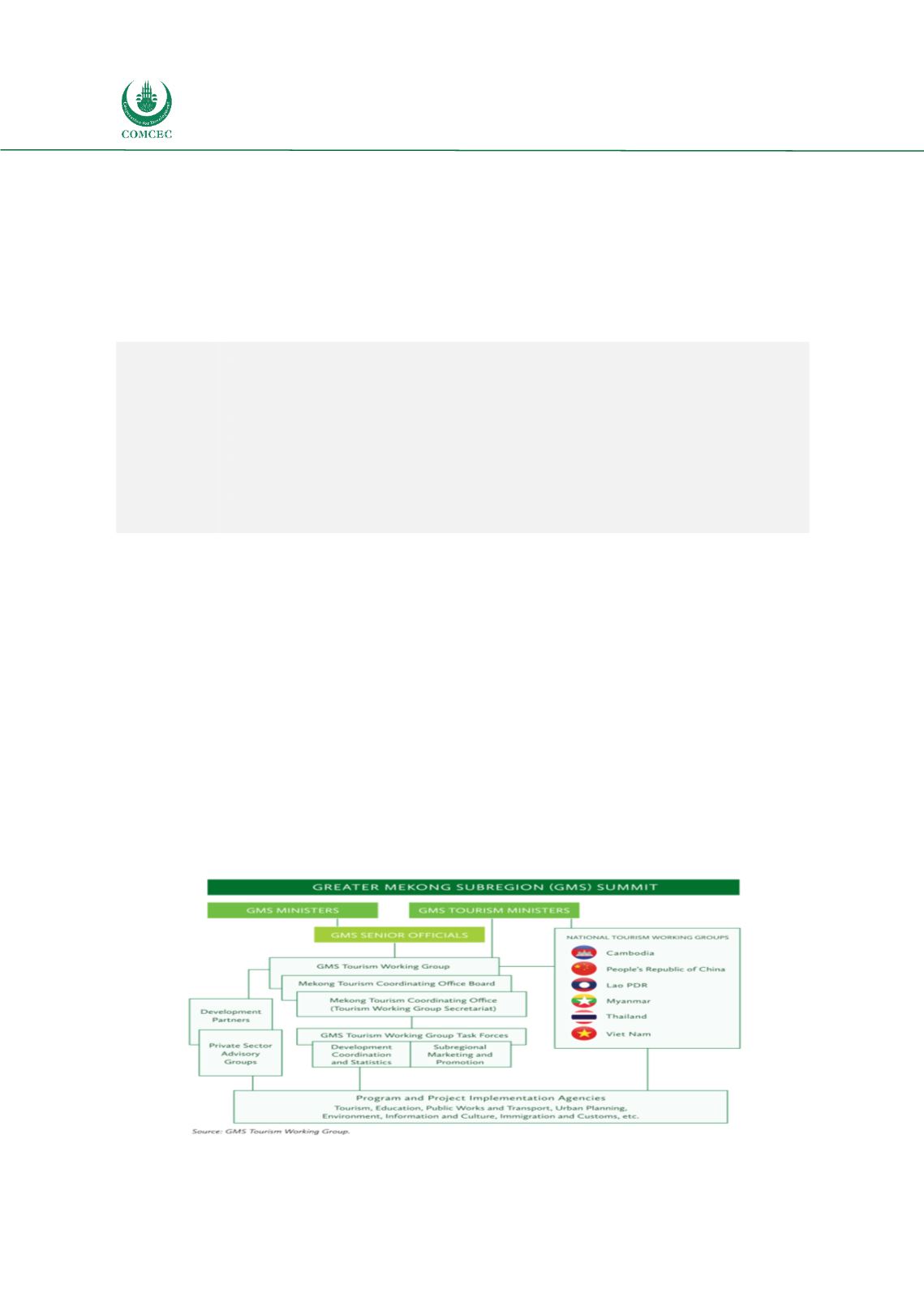

Sustainable Destination Management
Strategies in the OIC Member Countries
154
resources to be included in the corridors. In the case of the Holy Family TC, the Coptic Church
in Egypt played an important role in identifying the sites to be included in the corridor.
Table 23: Theme Formulation - Best Practices versus OIC Examples
Best
Practices
-
The HANSA Culinary Route creates a culinary theme with elements such
as visits to local producers and markets, special menus in restaurants,
and culinary festivals.
-
The Prehistoric Rock Art Trails uses the criteria for the evaluation of
the quality of rock art sites to be included in the route.
OIC
-
ICOMOS analysis of sites along the Silk Roads in terms of uniqueness and
distribution. Identifying major nodes or large cities along the Silk Road
and route segments between those nodes.
-
The Jordanian NGO Cultural Technologies for Heritage and
Conservation researches the historical value of the sites to be included
in the Umayyad corridor and assesses their condition.
-
The Egyptian Ministry of Tourism, in cooperation with the Coptic
Church, researched the Holy Family sites to decide on the sites to be
included in the TC.
4.2.
Best Practices versus OIC Tourism Corridor Governance and Management
Governance Structure
In terms of governance structure, the GMS TC offers a great example of best practices, with
bodies representing the various stakeholders and having well-defined functions. With GMS
tourism, ministers appoint NTO officials to represent GMS countries in the GMS Tourism
Working Group, which meets to set GMS tourism strategies and initiatives, approve resources
for their implementation, and monitor implementation. The GMS Tourism Working Group
cooperates with development partners and private advisory groups, and also acts as an
advisory body to the Mekong Tourism Coordination Office. The Mekong Tourism Coordination
Office promotes cooperation among GMS governments and assists in coordinating and
implementing programs. The GMS Tourism Working Group Task Force sets priorities for
national implementation for GMS TC countries. Programs and initiatives are implemented by
the various national agencies of the GMS TC countries.
Figure 43: Greater Mekong Subregion TC Governance Structure
















